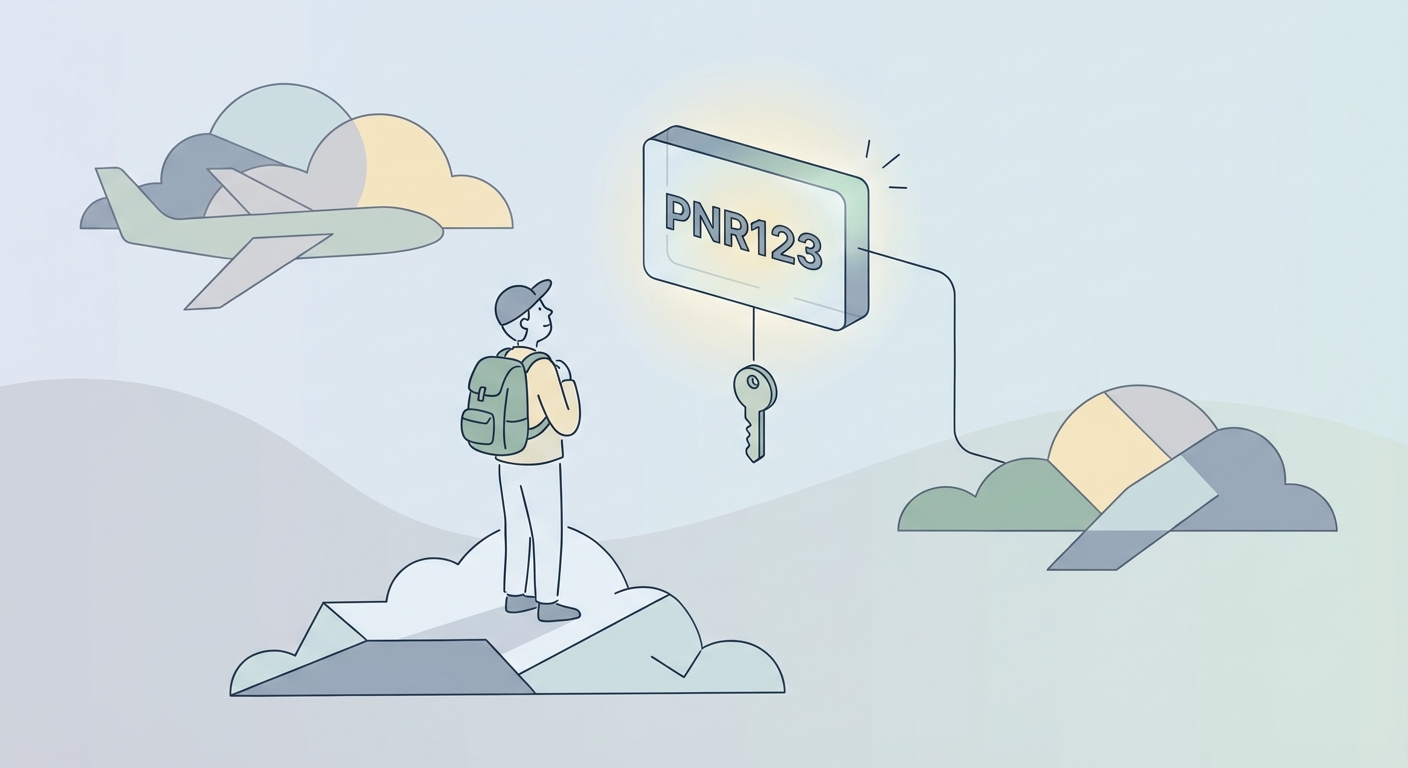Navigating the Unknown: A Comprehensive Guide to Travel Risk Management for Adventure Seekers
TL;DR
- This article provides a deep dive into travel risk management, specifically tailored for adventure seekers. It covers essential topics like pre-trip planning, in-trip monitoring, and emergency response strategies. Equip yourself with the knowledge and tools needed to minimize risks and ensure your adventures remain thrilling, safe, and memorable.
Understanding Travel Risk Management: Why It Matters for Adventure Seekers
Adventure seekers crave the unknown, but venturing off the beaten path requires careful planning. Travel Risk Management (TRM) prepares you to handle the unexpected, turning potential disasters into manageable situations.
TRM involves anticipating, preventing, and responding to risks travelers may face. (THINGS YOUR COMPANY'S TRAVEL RISK ...) International SOS defines it as a practice to handle unplanned risks that can be anything from extreme weather events to social unrest.
- Anticipating Risks: This is all about looking ahead and figuring out what could go wrong. For adventure travel, this means thinking about specific environmental hazards like avalanches in snowy mountains, rockfalls on a climbing route, or extreme temperatures – whether it's scorching desert heat or freezing arctic cold. It also includes health hazards such as altitude sickness when you're high up, tropical diseases in humid climates, or specific injuries tied to your activity, like diving-related decompression sickness. You're basically trying to see the trip through a lens of "what if?"
- Preventing Risks: Once you know what might happen, you take steps to stop it or lessen its impact. This could mean getting necessary vaccinations for diseases prevalent in your destination, booking reliable and safe transportation, or having a solid emergency plan in place. For those specific environmental hazards we talked about, prevention might involve carrying avalanche safety gear and knowing how to use it, wearing appropriate helmets and protective clothing for climbing, or packing specialized gear for extreme weather. It’s about being proactive and equipping yourself.
- Reacting to Risks: Even with the best planning, things can still go wrong. This pillar is about having a clear plan for what to do when that happens. It means knowing who to contact, how to access help, especially in remote locations where resources might be scarce. It’s about having a response ready, not just hoping for the best.
Adventure travel often involves remote locations and extreme activities, where the stakes are higher. TRM ensures you can enjoy thrilling experiences while minimizing potential harm.
As Global Guardian notes, TRM is about protecting your people from the beginning to the end of a trip. (Travel Risk Management: A Guide to Protecting Your People)
By understanding and implementing TRM, adventure seekers can confidently explore the world, knowing they are prepared for whatever comes their way.
Pre-Trip Planning: Laying the Foundation for a Safe Adventure
Planning an adventure? It's more than just mapping your route; it's about building a solid safety foundation. This section focuses on the actionable steps you take before you even leave, turning potential hazards into manageable situations.
Before you pack your bags, research your destination thoroughly. Look into political stability, environmental dangers, and health risks. Also, assess the specific risks related to your chosen activities, whether it's the dangers of climbing, diving, or trekking.
Comprehensive travel insurance is vital for adventure activities. (Best Adventure Travel Insurance of 2025 - CNBC) Ensure your policy covers medical emergencies, evacuations, and gear loss. Understand the policy exclusions and limitations to avoid surprises.
A well-thought-out itinerary is crucial for a safe adventure. Plan each day, considering potential risks and alternative routes. Share your itinerary with a trusted contact who can track your progress and alert authorities if needed.
Equip yourself with essential skills relevant to your adventure. This includes first aid, navigation, and survival techniques. Physical fitness is equally important; prepare your body for the demands of the trip. Finally, build mental resilience and adaptability to handle unexpected challenges.
With these pre-trip preparations in place, you're setting the stage for a safer and more enjoyable adventure.
In-Trip Monitoring and Communication: Staying Safe on the Ground
Don't let unexpected events turn your adventure into a crisis. Real-time monitoring and robust communication are your lifelines while exploring the unknown.
- Use travel risk management apps for instant alerts and updates. These apps help you stay ahead of potential issues by providing real-time information on weather, local unrest, or health advisories, contributing to anticipating risks. They can also be crucial for reacting quickly if an immediate threat emerges.
- Stay informed via local news to adapt to evolving conditions. Understanding what's happening on the ground allows you to make informed decisions, helping you anticipate potential disruptions and prevent yourself from walking into trouble.
- Adjust your plans based on real-time insights. This is proactive risk mitigation in action. If you learn about a sudden road closure or a change in weather, being able to pivot your plans helps you prevent getting stuck or facing unnecessary danger, and it’s a key part of reacting to new information.
- Establish clear communication protocols. Share your itinerary with emergency contacts. This is fundamental for reacting to emergencies. If something happens, your contacts know where you should be and can initiate help if you go missing.
- In remote areas, satellite devices are a must. These devices ensure you can communicate even when traditional networks fail, which is critical for both anticipating potential issues by checking in and for reacting to emergencies by calling for help.
- Send regular location updates, so someone always knows where you are. This practice directly supports reacting to emergencies by providing a clear trail for rescuers if needed.
- Trust your instincts; if a situation feels wrong, it probably is. This point is about developing your situational awareness. It means paying attention to subtle cues – a change in the atmosphere, unusual behavior from people around you, or a gut feeling that something isn't right. When your instincts are triggered, take a moment to assess the situation: What specifically feels off? Are there any visible warning signs? If the feeling persists and suggests danger, don't ignore it. Your next step should be to create distance, seek a safer location, or discreetly seek help. It’s about listening to that inner alarm system.
- Interact respectfully with locals but remain cautious. Respectful interaction means being polite, learning a few basic phrases in the local language, and being mindful of cultural norms – for example, dressing modestly in religious sites or asking permission before taking photos of people. Remaining cautious involves being aware of your surroundings, not flashing valuables, and being wary of overly friendly strangers offering unsolicited help, especially in tourist-heavy areas. It’s about balancing openness with a healthy dose of awareness.
- Know when to change course or abort the plan if safety is compromised. This is a critical aspect of reacting to risks. It means having the courage and foresight to abandon a planned activity or route if conditions become too dangerous, rather than pushing forward due to ego or commitment.
Staying informed and connected transforms potential risks into manageable challenges.
Emergency Response and Evacuation: When Things Go Wrong
Imagine facing a sudden avalanche while skiing off-piste, or a flash flood during a canyoning trip. Do you have a plan?
- Pre-arranged evacuation plans are crucial. Know reliable providers in the region who can assist in emergencies. This might involve identifying local emergency medical services, specialized adventure rescue teams, or even private security firms that offer extraction services in high-risk areas. These firms can provide logistical support, secure transportation, and personnel to ensure a safe and efficient evacuation when standard services are overwhelmed or unavailable. You might need to engage them if you're in a very remote location, facing a security threat, or if a medical emergency requires transport to a facility beyond local capabilities. Researching and vetting these services before your trip is key.
- Keep emergency contact information readily available. Include local emergency services, your embassy, and your insurance provider.
- Familiarize yourself with local emergency services. Understand how they operate and how to contact them in remote areas.
First aid skills are vital for initial response. Contact your insurance right away to understand coverage. When you contact your insurance provider in an emergency, focus on understanding what specific expenses are covered, such as emergency medical treatment, hospitalization, and crucially, evacuation costs (which can be astronomical). Have your policy number, your current location, and a clear description of the emergency ready. Ask about the process for direct billing to medical facilities if possible, and what documentation they will require for claims.
Reporting incidents to authorities and your embassy is essential. Reporting to local authorities creates an official record of the incident, which is often required by insurance companies for claims processing. It also helps authorities track crime or safety issues in an area. Your embassy can provide vital assistance, especially in situations involving serious injury, arrest, or if you lose your passport. They can offer guidance, help you contact family, and sometimes even provide emergency loans or facilitate repatriation.
Security firms will help enforce evacuation plans, when needed.
Being prepared for emergencies will help reduce stress.
Post-Trip Review and Continuous Improvement
Your adventure doesn't end when you return home; it evolves. Reflecting on your experiences and applying those insights is crucial for future journeys.
Documenting lessons learned from the trip is invaluable. Note what worked, what didn't, and how you handled unexpected situations. For instance, a trekker might record that carrying extra water purification tablets proved essential due to unforeseen contamination. This helps in anticipating similar issues on future trips.
Identifying areas for improvement in your risk management strategies is key for refining your approach. Perhaps you realized your communication plan was inadequate in a region with unreliable service. This directly feeds into preventing future communication breakdowns.
Sharing your experiences with other adventurers helps build a community knowledge base. By posting trip reviews or participating in forums, you contribute to a safer environment for all, aiding in collective anticipation of risks.
Staying informed about evolving travel risks ensures you're prepared for new challenges. Follow updates from organizations like the CDC and WHO to monitor health advisories. This is a continuous process of anticipating new threats.
Participating in refresher courses and training programs keeps your skills sharp. Regular first aid and wilderness survival courses are essential for maintaining competence, directly supporting your ability to react effectively in emergencies.
Continuously refining your adventure travel skills enhances your confidence and safety. Practice navigation techniques or improve your climbing skills to better handle challenging terrains, which helps in preventing accidents.
By embracing post-trip review and continuous improvement, you transform each adventure into a valuable learning experience. This proactive approach not only enhances your personal safety but also contributes to a more informed and resilient community of adventure seekers.





